Correction appended, March 17
Shmuel Khavilio is cab driver who hasn’t voted in several elections, as his disillusionment with Israeli politicians and their promises has grown. But this time around he is planning to vote — and he’s casting a ballot for a brand-new party that didn’t even exist four months ago.
That party is Kulanu, and its leader, Moshe Kahlon, had been a longtime member of the ruling Likud, headed by Prime Minister Benjamin Netanyahu. But Netanyahu is facing stiffer-than-expected competition on Tuesday as Israelis vote in a national election that the right-wing premier himself called for back in December. Frustrated with dissent within his own government, Netanyahu dissolved it and asked voters to re-elect him and “give me a real mandate to lead the people and the country.”
That doesn’t look likely to happen. Instead, polls suggest voters will hand Likud only about 20 out of the 120 Knesset seats up for grabs, whereas some 24 or more seats are predicted to go to the Zionist Union, headed by Labor Party chairman Isaac Herzog and Tzipi Livni, who as justice minister headed talks with the Palestinians in the last government before falling out with Netanyahu.
Livni isn’t the only Israeli to part ways with the three-time Likud leader whom Israelis roundly refer to as “Bibi.” Netanyahu’s traditional voting base is being drained by parties declaring themselves centrist, such as Kulanu and Yair Lapid’s Yesh Atid party, as well as those further to the right, such as the Jewish Home party led by economy minister Naftali Bennett, and hardliner Avigdor Lieberman’s Yisrael Beitanu party.
But Kahlon, a former Minister of Communications who is credited with breaking up the country’s cell phone monopoly and drastically bringing down prices, may be the biggest threat of all to Netanyahu’s pool of voters — and could yet decide the premier’s future.
Scenes from Election Day in Israel




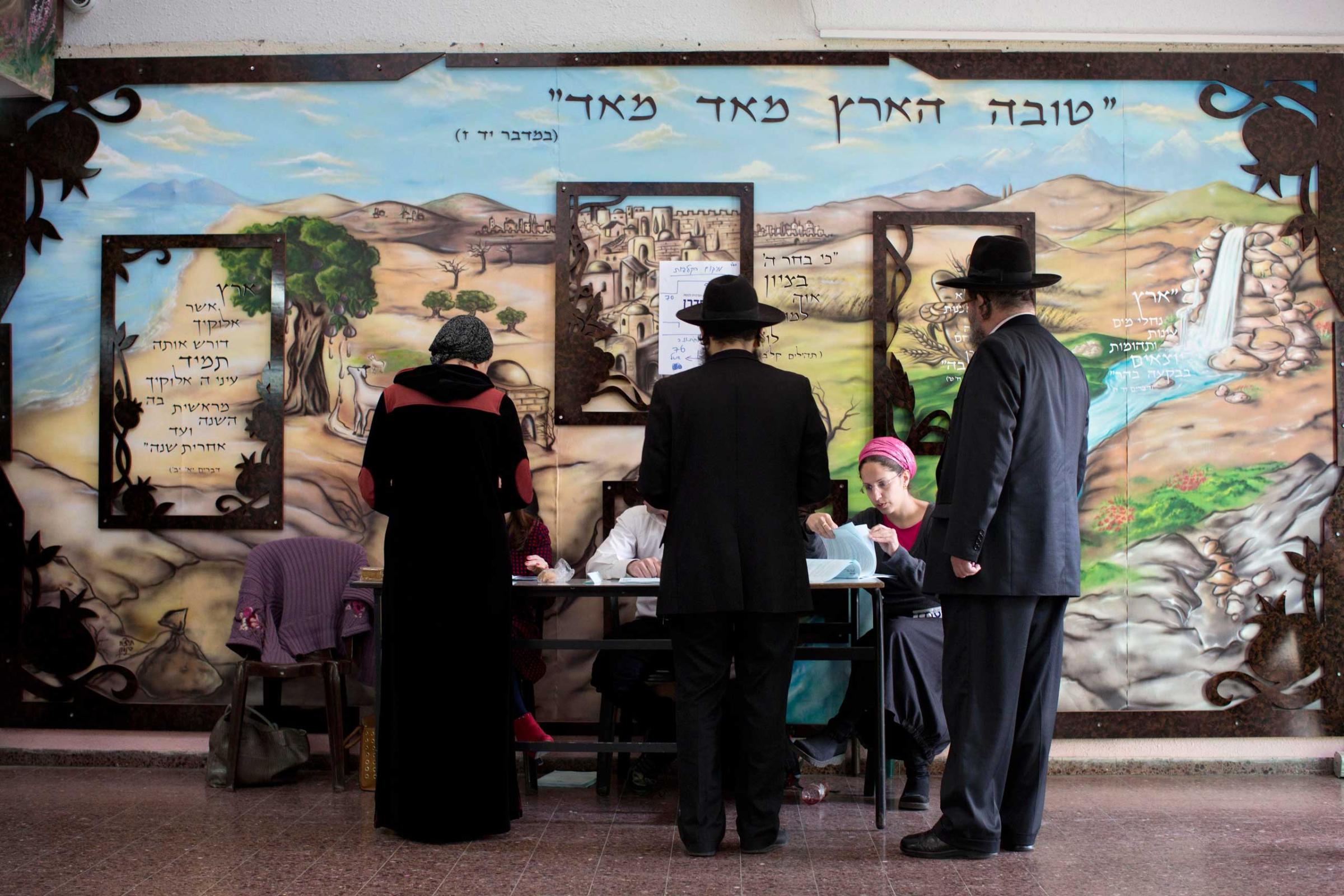
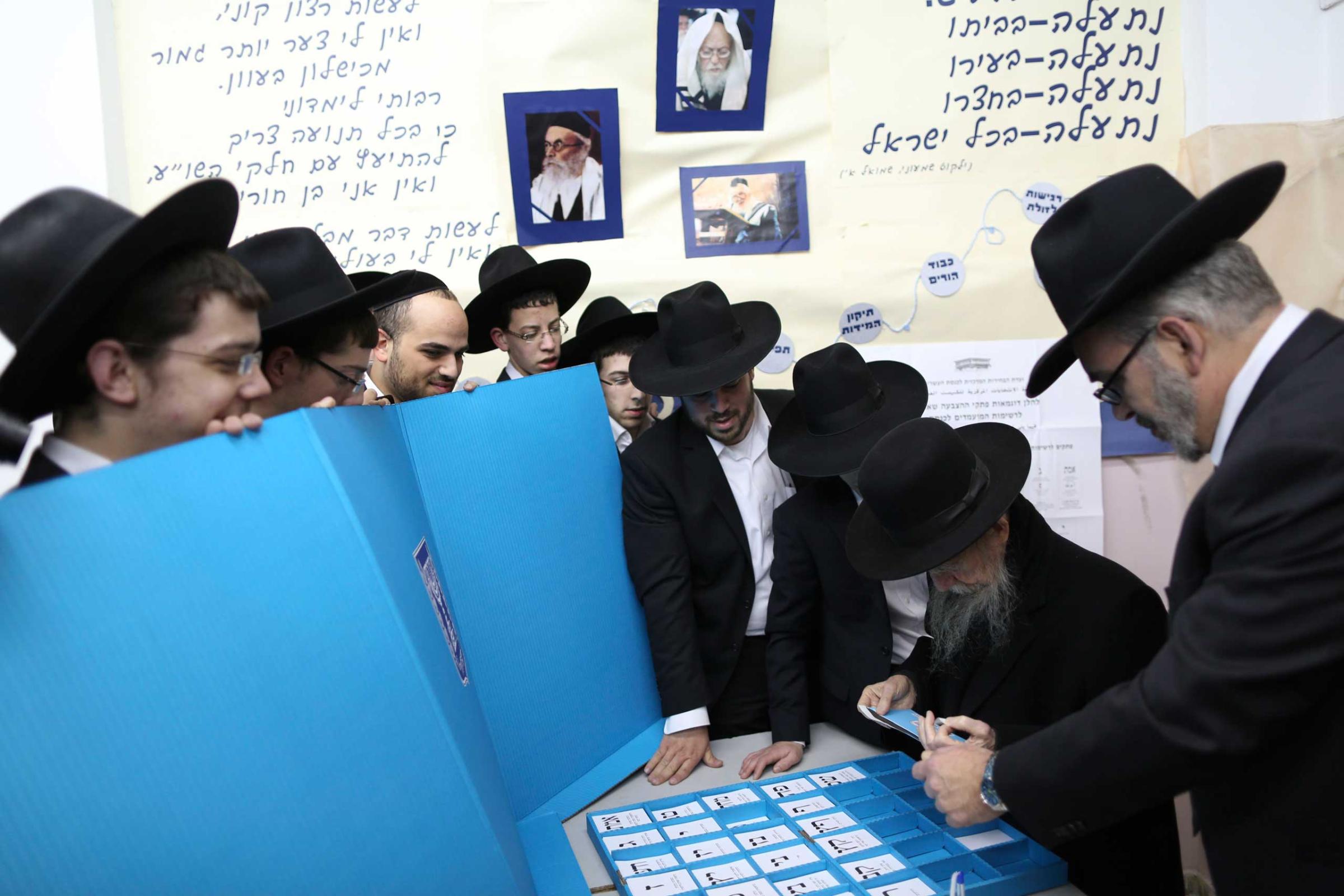
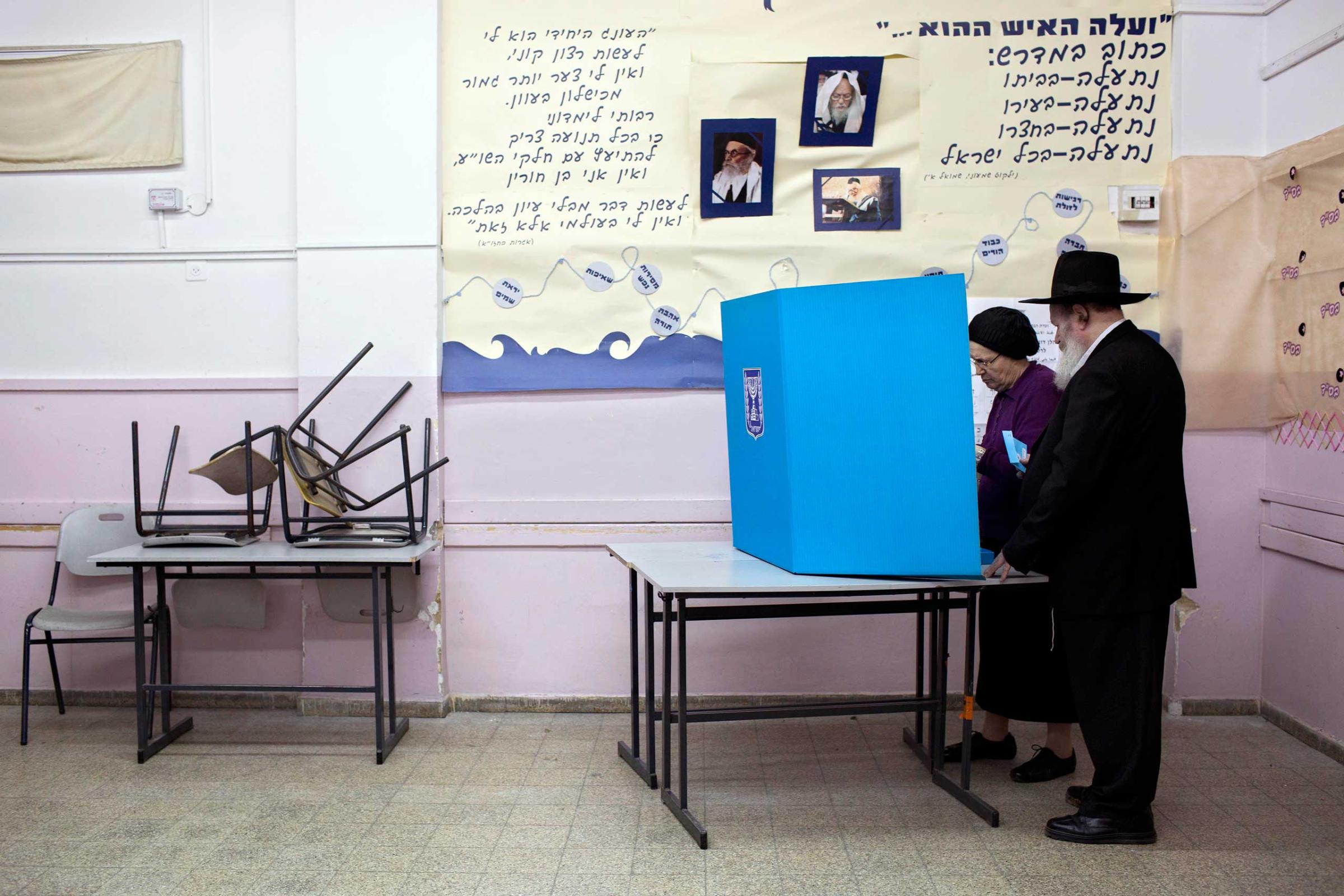
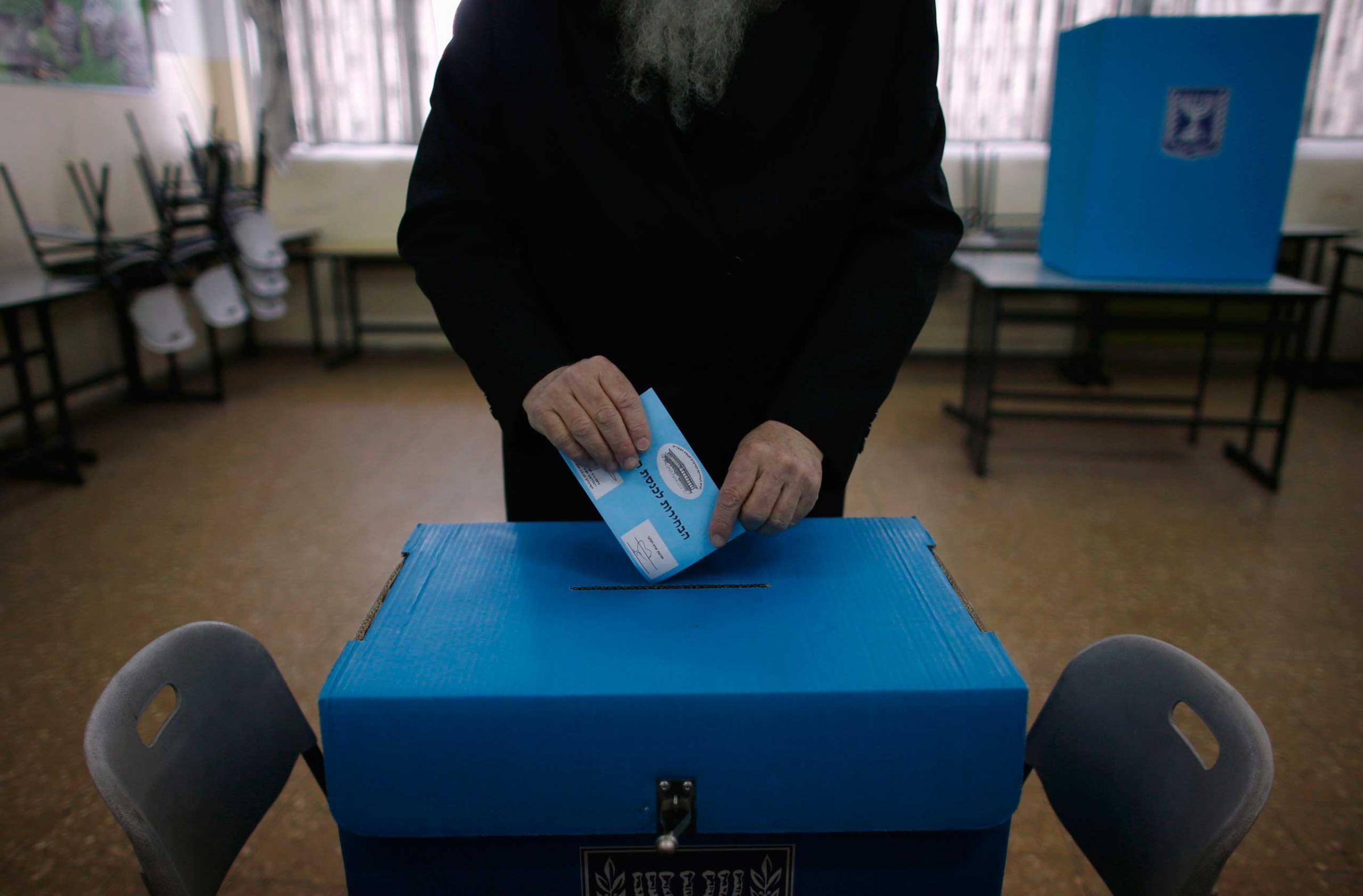
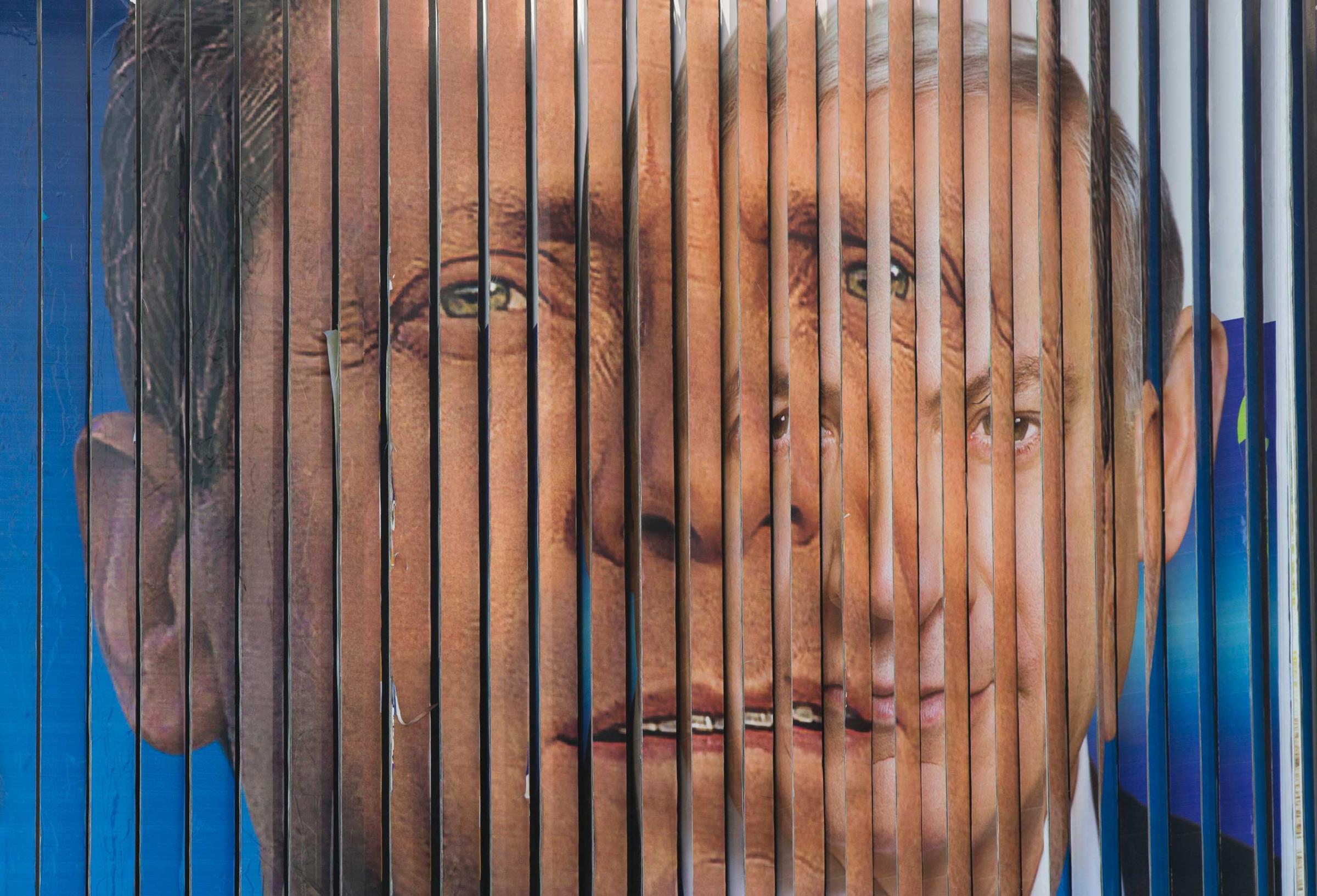
One of the most prestigious names to join Kahlon’s slate is Michael Oren, who served as Netanyahu’s ambassador to Washington until two years ago. In an interview with TIME, Oren says that he was never a member of Netanyahu’s Likud, but had gladly accepted the invitation to help explain Israel’s position in the United States. That included the pivotal issue of Iran’s nuclear program, over which Netanyahu has publicly butted heads with the Obama administration to the point of outright crisis between Jerusalem and Washington. Oren was a key player in many of those discussions in recent years.
“I know better than almost anyone that a nuclear-armed Iran poses an existential threat,” he says by telephone while campaigning for Kulanu in small towns along the coastal plain north of Tel Aviv. “But Israelis overwhelmingly list the price of living in this country and the price of housing as the biggest existential threat of all. My joining this party was an ‘it’s the economy, stupid’ kind of moment.”
That’s a reference, of course, to a popular slogan of the Clinton-Gore campaign in 1992, when the two Democratic candidates initially looked like a long shot for replacing the incumbent, George H. W. Bush. While salaries here have remained flat, housing and cost-of-living prices have skyrocketed in the last few years. A state auditor’s report released a few weeks ago showed that home prices have jumped by 55 percent and rents by 30 percent from 2008 to 2013, which includes most of Netanyahu’s recent tenure.
Like Clinton, Kahlon comes from a modest background. He’s a child of Libyan immigrants to Israel who was raised in a two-bedroom house with seven children, but went on to earn two higher degrees and take on big business while in the cabinet. It was while Kahlon was on a trip to Washington as a Knesset member that they first met. “He made a big impression on me,” Oren says. “He’s very personable and charismatic – but also very grounded and honest, unlike many politicians I’ve met.”
That’s exactly the sentiment that is getting many average Israelis like Khavilio, the cab driver, out to vote. “It’s just hard to make a living here anymore,” says Khavilio, who finds Kahlon – like him a Jew of Middle Eastern descent – more trustworthy than the others. “Most people I know don’t make it through the month without going into debt. By the time you pay your rent or your mortgage, there’s hardly enough left over to buy food, or to get your kid a pair of sneakers.”
Although Oren has chosen a party in fierce competition with his former boss, he says that wasn’t the intention. Ever the diplomat, he treads lightly on any criticism aimed directly at Netanyahu, and with good reason: they may yet end up working together. Even if Likud doesn’t win the most seats, the current prime minister could still end up being invited by Israel’s president to form a coalition of centrist and right-wing parties that would naturally include Kulanu.
In that configuration, Kahlon would almost certainly ask for the finance ministry; in fact, Netanyahu has already offered it to him, but Kahlon declined, saying he had no interest in committing to a government with a man who had failed to keep his word on many occasions. It’s also possible that Kahlon, as the new “kingmaker” who is willing to pair up with a left or right-leaning premier, will demand the foreign minister position for Oren.
But when the election stations close at 10 p.m. on Tuesday and the first exit polls by Israel’s three leading station release their unofficial results, the demands on the leading vote-getters will be immense, and the game of coalition building will begin. It’s a particularly difficult election to call, analysts say, because Israeli voters have been surprised before. Netanyahu’s first victory, in 1996, came the morning after exit polling had predicted a win for Shimon Peres and the Labor Party. And in 2009, Livni’s Kadima party won the highest number of seats — but it soon became clear that only Netanyahu could put together a government because most of the available Knesset seats were center or right-wing.
If the same thing happens again, Kahlon’s role could be decisive. But hours before polls close, no one is placing bets on what might happen. “The Israeli electorate has become very volatile. There are too many voters up for grabs,” says Reuven Hazan, a professor of political science at the Hebrew University of Jerusalem. “Usually in a Western democracy, you’re talking 10 to 20 percent to voters who are willing to switch parties. Here it’s anywhere between two to three times as much, and you’re speaking about tremendous volatility in the last couple of days.”
Israeli voters, he says, seem to be in a search for something they still haven’t found. “Voters are looking for someone who’s going to make them feel better off in terms of security and deliver – or someone who will make them feel better economically and deliver,” he says. “Everybody is fighting for every vote.”
Correction: The original version of this story misstated the incumbent U.S. President during the 1992 election. It was George H. W. Bush.
More Must-Reads from TIME
- Cybersecurity Experts Are Sounding the Alarm on DOGE
- Meet the 2025 Women of the Year
- The Harsh Truth About Disability Inclusion
- Why Do More Young Adults Have Cancer?
- Colman Domingo Leads With Radical Love
- How to Get Better at Doing Things Alone
- Michelle Zauner Stares Down the Darkness
Contact us at letters@time.com